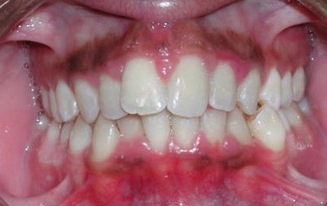Health
Recovering from Gum Disease
Guest Blogger: Anna Hewitt
Gum disease is one of the most common oral health problems and the leading cause of premature tooth loss in adults; gum disease is largely preventable and it can be treated relatively simply in the early stages; but if it is left to develop, it can have devastating effects.
Treating Mild Gum Disease
The good news is that mild gum disease, known as gingivitis, is treatable and the gums should make a full recovery. The main symptoms to look out for include swollen, tender, and sore gums and bleeding after you brush your teeth; if you notice any of these signs, you should see your dentist as soon as possible, as treatment is most effective during the early stages.
Most cases of gingivitis can be treated using oral hygiene methods alone; your dentist will give your mouth a thorough clean and they may advise you to see a dental hygienist, an expert in oral hygiene.
Treating Advanced Gum Disease
Unfortunately, advanced gum disease, known as periodontal disease or periodontitis, is a completely different ball game; severe gum disease causes permanent damage to the gums and irreversible effects, often leading to tooth loss. In addition to physical effects, gum disease can also affect your confidence and make you feel self-conscious when you smile or talk to other people.
There are treatments on offer that can help with advanced gum disease, but treatment often takes a long time and it may be intensive; in severe cases, dentists may recommend patients to a periodontist, a specialist in treating gum disease.
Treatment options include scaling and polishing, intensive cleaning treatment, oral hygiene management and education, and in extreme cases, surgery.
The Road to Recovery
Advanced gum disease is a chronic condition; treatment usually takes a long time and it can be a difficult and painful process. The aim of gum disease treatment is to preserve the gums and manage oral hygiene so that the condition gets better, not worse.
During the recovery process, your dentist will be on hand to help and support you and you will be advised to attend regular appointments, usually with a dental hygienist. Treatment involves regular cleaning treatments to remove bacteria, plaque, and tartar from the mouth. You may need other treatments depending on the damage caused by the gum disease, for example, gum contouring or implants. Patients will be taught how to brush properly and dentists may also provide advice about healthy eating and giving up smoking.
A Healthy Future
Gum disease can be a very serious condition if it is left untreated, but recent research studies have made the fight against gum disease even more important. Numerous studies have indicated that gum disease can increase the risk of a number of severe health conditions, including diabetes, strokes and heart disease, so treating and managing the condition is more important then ever before. It is believed that bacteria from the mouth can travel to other parts of the body, which may bring about an inflammatory response.
Your dental care team will provide you with information and advice to help you improve your oral hygiene and help you to reduce your risk of developing health complications.
About the Author
Anna Hewitt is an experienced writer who specialises in her field of gum disease, she wrote this article on behalf of www.britishdentistry.org.uk.



